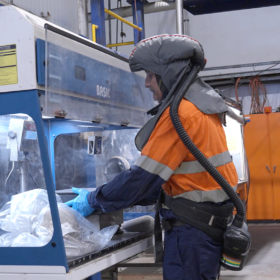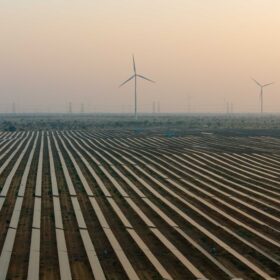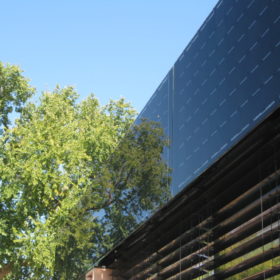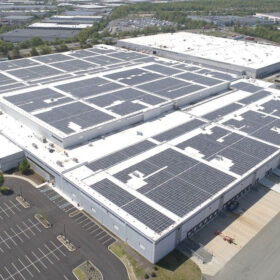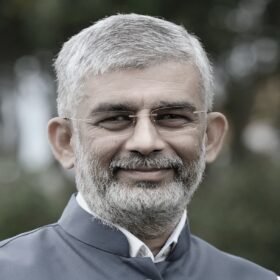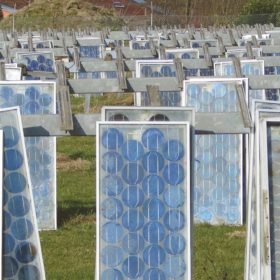Australian battery recycler inks deal with Chinese electric vehicle giant BYD Auto
Advanced materials technology company Lithium Australia has signed an exclusive agreement with China-headquartered BYD Auto Industry Company to provide battery recycling services.
India to face significant land, water challenges in scaling renewables beyond 1.5 TW, says CEEW study
A new report by CEEW states that India’s unconstrained RE potential exceeds 24 TW (terawatts), but not all of it is achievable. Even reaching the 7 TW required to achieve net-zero emissions by 2070 will require a holistic approach to addressing challenges such as land access, climate risks, land conflicts, and population density.
Supply chain innovation vital for product transformation
Real-time data visibility is the most crucial aspect of modern supply chain management. Companies should utilize Internet of Things (IoT) devices, blockchain technology and cloud-based platforms to monitor their global supply chain networks. This gives key details on inventory levels, manufacturing progress, and shipping schedules.
Sustainability: A non-negotiable reality for long-term business growth
By proactively embracing more sustainable practices and aligning themselves with global sustainability goals, companies can ensure their continued viability and contribute to a healthier planet. The journey towards sustainability may be complex and challenging, but it is an investment that will yield significant returns in the long run.
Data center power loads threaten corporate net-zero goals
The International Energy Agency (IEA) projects that by 2026, data centers will consume more than 800 TWh annually, more than double their consumption in 2022.
Attero launches e-waste consumer take-back platform
Attero, India’s largest e-waste recycler and the world’s largest li-ion battery recycling company, has launched an integrated electronic waste (e-waste) consumer take-back platform– Selsmart. Through Selsmart, it targets an annual recurring revenue of INR 1,000 crore by the third year with e-waste collection of 140,000 metric tonnes.
Ensuring sustainability in solar and battery storage supply chain
Geneva-headquartered dss+, a spin off from DuPont, helps industries switch to sustainable and resilient operations. It serves power and utilities, oil and gas, metals and mining, among other industries.
With a strong presence in India alongside leading industry players, dss+ has been instrumental in shaping the region’s energy landscape. Srinivasan Ramabhadran, managing director, APAC, dss+, speaks to pv magazine about balancing efficiency, cost, and environmental impact in solar and battery storage manufacturing.
How renewable energy is leading the fight for nature conservation
Even though fossil fuels still dominate global energy production at present, the movement for a changeover to cleaner forms of energy is building up. Renewables presently provide some 29 percent of all electricity generated; a figure bound to enormously rise in the next few years.
Global LNG market teeters on the edge of a supply tsunami
The global LNG market is on the cusp of a transformative era. While an oversupply looms, the market’s trajectory remains subject to the vagaries of project completions and geopolitical tensions. The interplay of supply and demand dynamics will invariably shape the landscape, heralding an era of heightened volatility and strategic recalibrations.
Integration of renewable energy in the circular economy
In this article for pv magazine, Naresh Mansukhani, CEO, Juniper Green Energy, writes circular economy goes beyond just recycling physical components. Innovative business models are emerging that promote resource efficiency and extend the lifespan of renewable energy technologies.
